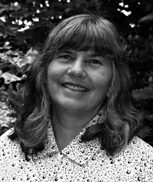Sorry” is the hardest thing to say. And also the easiest. Anyone who has lived with teenagers knows the easy version, the “Sorreee” that translates roughly into “O.K., so whatever; just get off my case.” Such apologies are meaningless; in fact they are derisory. We have also, in recent times, heard a few official apologies about various matters, some of which may have left us with the slightly sour aftertaste of political expediency. The lips have spoken. But was the heart engaged, we might wonder.
In Australia a very different kind of apology was recently made. The people of that continent have long carried a collective sense of guilt about the treatment of aboriginal people in the past, and especially with regard to the so-called “stolen generations.” These were children who were forcibly removed from their families and taken to boarding schools, where they were forbidden to use their own languages and where the culture and value systems of the colonizing power were imposed on them, often violently. The pattern was repeated in other parts of the “new world,” and the churches actively colluded in the abuses. The United States, Canada and Australia are now very consciously trying to put right those wrongs—wrongs that originated not in the new world at all, but in European imperialism. Tragically, this pattern of cultural imperialism is far from dead in our own times.
So why was the Australian experience so moving?
The Sydney Times of Feb. 14 commented that “Australians cannot rewrite their history, but they can re-shape their future.” The previous day the newly elected Australian prime minister, Kevin Rudd, had honored the promise of his manifesto, and on behalf of the people said “Sorry” to the indigenous peoples of the continent. Can we redress past wrongs simply with a word? Of course not. The same issue of The Sydney Times has a cartoon showing a trucker waving a cursory “Sorry,” as he drives on, to a man he has just mown down on the road. Words can kill, but words alone cannot heal. But they can be the beginning of a different way forward.
Certainly Rudd’s words were far from cursory. They were a major speech to all Australians, totally and exclusively focused on the matter in hand, the matter of repentance. More important, they were not simply the convenient words of a politician, but an expression of the true spirit of the nation, a spirit he had been specifically elected to express. I saw many tears that morning, both of deep sorrow and great joy. Very few hearts remained untouched.
Another comment, however, made me prick up my ears. A friend remarked, “For the aboriginal people, the word ‘sorry’ is hugely important and means much more than it does for us. In fact they would use the expression ‘sorry business.”’ He went on to explain that in aboriginal culture, the word of apology is only just the beginning of a long process of making that sorrow and repentance incarnate in actions and in change. Not a word, but a whole business is involved when wrong has been done. Rudd obviously knew this all too well, as he proceeded to spell out practical measures that would be implemented, for example to improve aboriginal education, health care and employment opportunities. This was the “business,” and it was going to be costly and difficult and demanding, but utterly necessary if this “Sorry” was to be more than a “Sorreee.”
I wondered, out loud, how the aboriginal communities would respond. I guess I half hoped for a public acceptance of the apology in the next day’s post, so to speak. Wrong again! My informant continued my education: “There is sorry business,” he told me, and “sorry time.” When wrong has been done, and the apology made and the business begun in earnest, then the offender has to serve “sorry time.” This means waiting until the one you have harmed chooses to extend the hand of forgiveness. It takes time. These indigenous people understand, better than we do, that forgiveness, like repentance, cannot just be dispensed in words (or even in sacraments), but has to be grown, and that growing takes time—painful time. Who knows when and how Australia’s first peoples will feel that the sorry business has been done and the sorry time has been served?
The sacrament of reconciliation reflects this wisdom. It requires that the penitent express true contrition and offers absolution with the requirement that a penance be performed. In other words, the penitent’s “Sorry” must be genuine and must lead into the “sorry business.”
We often hear complaints that this sacrament is falling into disuse. It would be easy to come to the conclusion that people in today’s world have lapsed into the “Sorreee” habit, and we are no longer taking seriously the damage we do to one another or to the planet. There may be other reasons, however. Could it be that people realize that if our “Sorry” to God is merely a perfunctory prayer in a confessional, then it will never address the real and deep and painful issues that are churning away within us and among us?
I believe we can learn something from the Australian experience. And I wait, not too patiently, for the word of sorrow that my own nation of Great Britain owes the world in general, and the people of Ireland in particular, for past wrongs. And I pray for the grace to be part of the “sorry business” in whatever way I can, because collective sorrow can only become real in personal lives.








